Foreign invasion of NW India: Shakas, Parthians, Kushanas
Foreign invasion of NW India
- Bactrians & Parthians (Iranians) became independent from Syrian (Greek) rule around 300 BC
- Around 200 BC, B.C. Demetrius, the Greek ruler of Bactria invaded Afganistan & Punjab & occupied them.
- From Taxila he sent his 2 commanders, Appolodotus & Menander for further conquest.
- Appolodotus conquered Sindh & marched upto Ujjain
- Menander extended his rule upto Mathura & from there attempted to capture Patliputra, but was stopped by Vasumitra (Grandson of Pusyamitra Sunga)
- Menander, also called Milinda, formed his capital at Sakala (Sialcot) & took great interest in Buddhism. His dialogues with Buddhist monk Nagsena were compiled in Pali work “Milindpanho” or questions of Milinda.
- Milinda, finally embraced Buddhism under Buddhist monk Nagarjuna
- A Greek ambassador, Heliodorus, became vaishnavite (Vasudev worshiper mainly) & erected ‘Garuna Pillar’ at Besnagar (Vidisa) – MP
- Indo-Greeks were 1st to issue gold coins in India
Shakas (Iranian Sythians)
- Greeks were followed by Scythians (Shakas) who controlled much larger area of India then Greek did. There were 5 branches of Shakas in 5 different directions in India & Afghanistan.
- Most famous Shaka ruler in India was Rudradaman 1 who ruled not only Sindh but also considerable part of Gujrat, Konkan, Malwa & Kathiawar.
- Rudradaman 1 is famous in history for his repair work of Sudarshana Lake at Kathiawar & for issuing 1st ever long inscription in chase Sanskrit whose he was a lover of
Around 57 B.C, we hear of a king of Ujjain who fought effectively against Shakas & emerged victorious, He called himself ‘Vikramaditya’, by whose name an era Vikram Samvat is reckoned. Henceforth, Vikramaditya became a coveted title & whosoever achieved anything great adopted this title.
Parthians (Pahlavas)
- Parthians (Iranians) overthrew Shakas from Taxila around 1st century.
- Most famous Parthian king was Gondopherens, in whose reign St. Thomas is said to have visited India for propagation of Christianity.
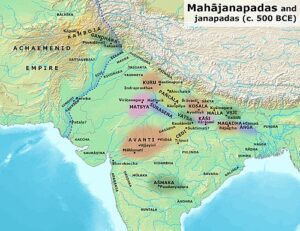
Kushanas
- Branch of Yuchis or Tocharians tribe from north central Asia basically from neighbourhood of China
- They 1st occupied Bactria or North Afghanistan, displacing Shakas & then gradually moved upto Kabul valley & seized Gandhara by crossing Hindukush range, replacing rule of Greeks & Parthians from these areas.
- Finally, they setup their authority over lower Indus basin & Greater part of Ganga basin
- Founder of Kushana dynasty was Kadphises 1 who issued coins in Kabul valley in his name.
- His son Kadphises 2 issued gold coins with high sounding titles like “Lord of whole world” and spread his kingdom to the east as far as Mathura
Kanishka (78 – 120 AD)
- Most important ruler of Kushana dynasty & founder of Shaka era (Starts from 78 AD) used by GOI
- He was not only a great conqueror but also extended his whole hearted patronage to Buddhism
- He extended Kushana empire upto lower Indus basin (Malwa) & eastward till Magadha in India & setup his capital at Peshawar (Purushaputra)
- Kanishka issued a high number of gold coins with high purity & embraced Buddhism whole heartedly.
- However, his coin exhibit images of not only Buddha but also of Greek & Hindu gods which reflects that he was tolerant towards other religions
- He was a great patron of art & Sanskrit & held 4th Buddhist council at Kashmir, where doctrine of Mahayana form of Buddhism were finalised
- He patronised many Buddhist scholars like Asvagosha (who wrote saundarananda & Budhhacharita > Both in Sanskrit), Nagarjuna & Vasumitra
- He also patronised famous physician of Indian history Charka who wrote “Charaksamhita”
- Last important Kushana ruler was Vasudeva who was worshipper of Shiva.
Impact of central Asian Contact
- Typical pottery of this age became red ware pottery, Plain & polished
- Shakas – Kushanas introduced better cavalry & use of riding horses on large scale along with use of turban, tunic, trousers & longcoats
- Kushanas were the 1st ruler in India to issue gold coins on wide scale & controlled major part of silk trade
- Kushanas adopted pompous titles as King of Kings & were called Sons of god like Asoka was called Dear to gods.
Gandhara School of Art
- Real patrons of this art were Shaka – Kushana rulers, esp. Kanishka.
- This art was a blend of India & Graeco-Roman elements (Mainly in Buddha sculptures) with main theme Mahayanism or new form of Buddhism.
- Extensive use of Stucco + Terracotta in small quantity
Mathura School of Art
- Famous for headless erect statue of Kanishka with his name inscribed below
- Produced Buddha sculptures exhibiting spiritual feeling on his face which was absent in Gandhara school of art
- Also produced stone images of Mahavira, Shiva & Vishnu along with their consorts Parvati & Lakshmi. Also carved out female figures of Yakshini & Apsara beautifully
- Extensive use of Red Sandstone
For more updates, explore the MCQs. Feel free to share your thoughts and comments
If you’re passionate about building a successful blogging website, check out this helpful guide at Coding Tag – How to Start a Successful Blog. It offers practical steps and expert tips to kickstart your blogging journey!

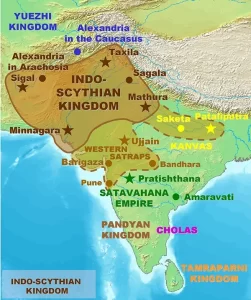
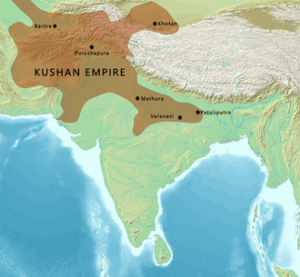
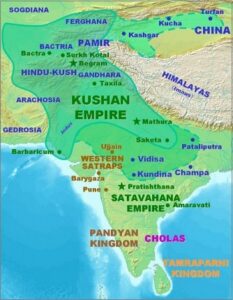
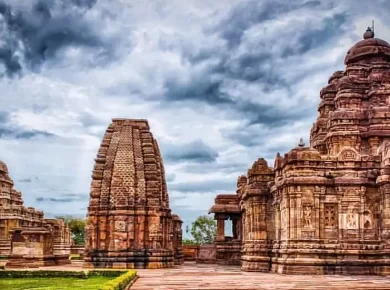
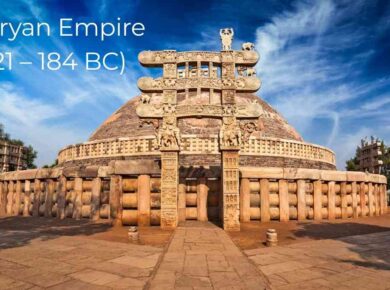
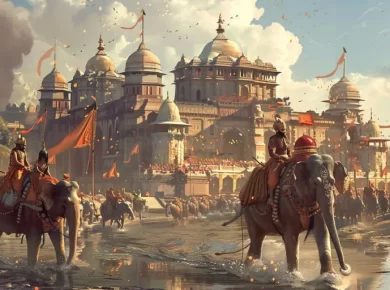
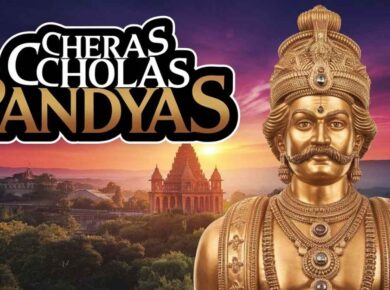


1 comment
Super Awsome